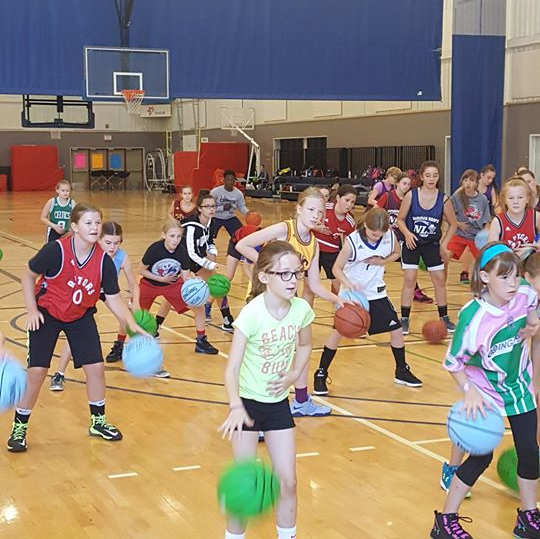Coaching Conversations
It is not all X's and O's
Newfoundland has always been over-run with guards, lots of little people who can shoot and dribble. As much as this is a fact, I have always been amazed at how few real point guards we as a province produce. Take a quick scan back through the history of Memorial basketball and look at how many point guards, especially the starters, were homegrown, surprisingly few. Memorial's teams began to become consistent play-off contenders when the keys to the program began to be handled by guards from off the island. What is the reason why a place with such a rich basketball tradition and so many quality players of shorter stature, produces so few true point guards? So few players who are ready to take control of a team and guide it to excellence.
The typical coaching situation in Newfoundland is the team showing up 5-10 minutes before their game, playing and then dispersing as quick as it is over. All the information relayed by a coach pertains to the task of trying to either defeat, or survive the game immediately in front of them, depending on the relative talent of the teams involved. Once the game is over the coaching is over. I was fortunate enough to grow up in a different environment and to pay attention to what the players around me had to say. The thing I heard again and again was that the time that coaches invested with players away from basketball, after the games or after practice, was as or more important then anything during practice or the game itself. It formed in me the need to be in communication with your players and help them understand not just what you wanted in the immediate, this drill or this game, but what they had to do in the universal, in every drill or every game.
I have never owned a license, never driven a car. I have relied on three things to navigate the world, public transit, the shoe leather express and the kindness of others. I have found that during my time coaching basketball, club especially, I have seldom lacked for a drive home after practice. Instead it was usually a kind of cat and mouse game between players as when was the appropriate time to ask if coach needed a ride home. It was kind of a quid pro quo, my parents are willing to give you a drive home and in return I get an extra 10 or 15 minutes of basketball knowledge, what I need to understand about my performance and how it can be improved. These coaching conversations, whether organic or manufactured are the lifeblood of high level basketball development and especially the development of any true point guard. No offense to any parent who invests in their child's basketball experience and supports them and comes to see their games and is their shoulder to cry on or strength to continue. The reality is that just about 90% of all parental feedback is going to boil down to a couple key points, score or shoot more! They want their child to be successful and most of the praise is heaped on those that do the thing that is most observed, and that is put the ball in the basket. They are not trying to tell their child to be selfish, just if you want to play more, be criticized less, get more praise, the easiest path seems to be to score.
If we are trying to grow point guards, who by nature need to be unselfish and create an atmosphere where others are going to flourish, how does that square with the most consistent advice that they receive, which is to shoot it if you touch it. They need their coach to talk to them about how the position is played, the kinds of decisions that they need to make, and what needs to happen for everyone to succeed. Taking 5 or 10 minutes to talk to your point guards, once or twice a week is crucial. Asking questions, "What did you see there?" "Why did you pass the ball to them?" "Who is our best player and how do we make sure they touch the ball regularly?" Point guards need to be able to do three things, defend the point well and establish our defensive identity at the point of attack, make sure that their team gets quality shots and know when to insert themselves in a lead dog role. It is hard to teach these things in practice, that is why taking the time to have conversations with your players outside the confines of the game about what they should be looking for, what they see now and what needs to be better, is so important.
I can see some coaches thinking, but if the parents are just telling them to score what difference does my voice make. It is something ridiculous like 7 out of 10 people who list the biggest influences in their lives as a coach, even above their parents. Only in a vacuum of no feedback from the coach can other feedback be considered. If the coach steps up to let the athlete know what they need to see, understand and execute, the other feedback falls by the wayside. Even the tough conversations around seeing the floor better, shooting less, causing the ball to move more will be welcomed if the player believes that it will help them be better and help their team play better. Following those conversations up with other conversations that revolve around the positive benefits improved decision making is having on the team's play are also crucial. The players need to be educated and then the education has to be reinforced with the facts that show why the decisions that are being made are important.
If you are trying to get better point guard play for your team, it starts with the coach. It starts with simply sitting down your guards and talking to them about what they see and what the team needs to do to be successful and the role they play in that. Playing point is so much more then just dribbling the ball up against pressure. It is organizing players in the right spots, it is getting the ball to the best players, it is making sure that everyone defends and finally it is knowing when you as the point need to assert yourself in the game and, if need be, take on the role of scoring to make sure the team is successful. coaches love players who understand decision making and how to lead a team, but those players do not come out of nowhere. They are nurtured and grown and the food of that growth is attention and conversation. What as a coach are you doing to grow the next generation of Newfoundland point guards, it is such a small investment of time, for such a big reward. If you do not feel you have the knowledge to have the conversations then it is incumbent upon you to seek out the people who do and put them in front of your players to help them grow and reach their potential. The next time you see your point guard walking away after practice or a game, take a couple minutes, call out their names and let them know, what they did right, what could be better and how they can help the team through the next little while. They will be so grateful and so much better for the small investment of time.
Join Our Mailing List
Thank you for joining the NLBA Mailing List.
Stay tuned for some great content from the NLBA.
Oops, there was an error submitting your message.
Please try again later.

